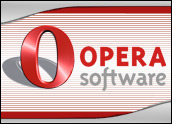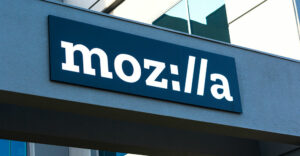
Norwegian technology companies Opera Software and Trolltech yesterday announced a strategic partnership agreement to combine their strengths and pursue joint business opportunities.
Opera authors the popular browser by the same name. Trolltech develops Linux technologies and cross-platform software. The companies said they would work to further integrate Trolltech’s Qtopia application environment for embedded Linux and Opera’s Web browser. The companies also plan to engage in joint marketing activities and sales training.
With this partnership, the companies are betting that a complementary set of products and a shared vision for the mobile communications and home entertainment markets position them well to explore mutually beneficial opportunities.
“Partnering with Trolltech simply makes sense. We have a full-featured and cross-platform mobile Web browser, and Trolltech’s Qtopia software provides a complete and customizable development platform and user interface for Linux-based home media and mobile devices,” said Opera Software CEO Jon S. von Tetzchner. “Together, we can leverage our combined strengths and present a more complete product offering to the market.”
First Fruits of Partnership
Opera and Trolltech believe close cooperation will strengthen the position of Linux in the market for mobile and home electronics. The first fruit of the companies’ collaboration can be seen in a new smartphone by ZTE, China’s leading telecommunications manufacturer and wireless solutions provider.
The new ZTE e3 mobile phone is an advanced Linux-based smartphone that is built on the Qtopia/Linux platform and includes the Opera Web browser. The Chinese Technology Development Plan (863) lists the ZTE e3 as one of the most important smartphone projects in China.
But Jupiter Research analyst Michael Gartenberg told LinuxInsider that perhaps the greater value in the Trolltech alliance is longer term — in the home entertainment market. No one vendor is dominating in this space because most consumers have not yet caught on to the idea of browsing the Web on their television sets.
“Products like WebTV have not exactly taken the market by storm. It’s not as if there’s a tremendous market in the current home entertainment space,” Gartenberg said. “However, it will be very interesting to see this market develop as technology becomes an enabler of other types of content, like RSS feeds. There’s some potential opportunities in the home entertainment space down the road, particularly on Linux-based devices.”
Opera Needs Additional Alliances
But that’s down the road. In the meantime, Opera may be the dominant browser on Simbian-based solutions and has undoubtedly made inroads with Nokia and Sony Ericcson phones, but the Norwegian company is still facing challenges with its mobile browser penetration.
“Opera is not the dominant browser on most cell phones,” Gartenberg said. “Its goal, of course, is to become the real core component in mobile technology. Opera’s mobile technology is excellent and that’s why we are seeing more and more places looking to use Opera.”
Ultimately, analysts said Opera needs to forge additional strategic alliances in order to gain more market share in the mobile browser market. Trio ships with its own Web browser. Microsoft devices ship with Internet Explorer.
“Opera needs to create a partnership with Microsoft or Palm, or work with the phone manufacturers to get into the ecosystem in that way,” Gartenberg said. “It’s a question of persistence and the ability to persevere.”



















































